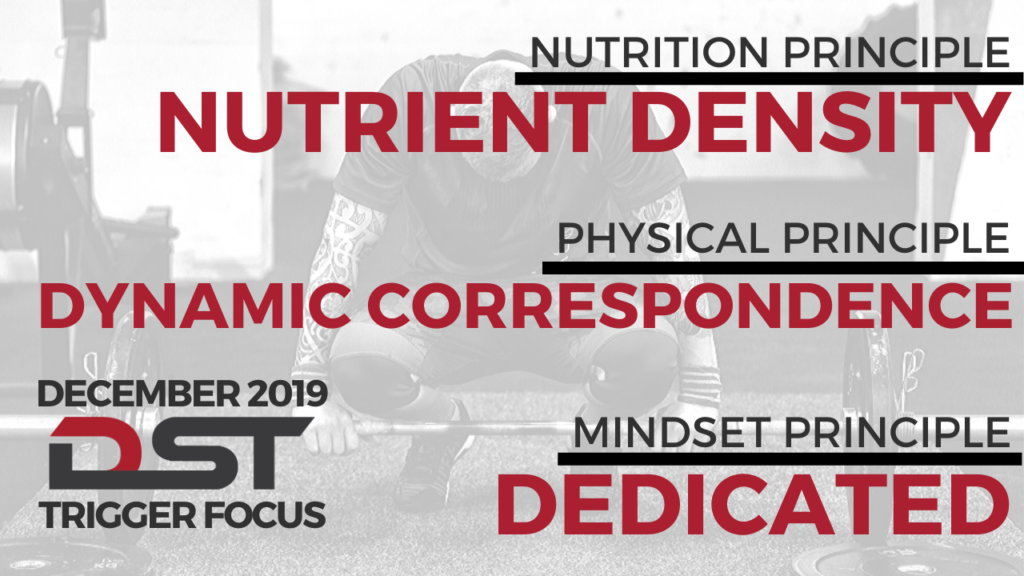Dedication | Nutrient Density | Dynamic Correspondence

Mindset Principle: Dedication
By Josh Graber
“I began to realize how important it was to be an enthusiast in life. If you are interested in something, no matter what it is, go at it full speed…above all, become passionate about it. Lukewarm is no good.” — Roald Dahl
Lukewarm is no good. Let that sink in. Of the things you say you’re passionate about, how many do you truly go after full speed?
Unfortunately, we see a lot of athletes whose actions don’t align with their words. Almost every athlete who comes to us has lofty goals they’ve set for themselves. Almost all want to play high-level college ball and most tell us they want to play professionally. We love hearing that, but only if the follow-through is there as well. We’ll have guys/girls come in consistently for a couple of weeks then start to drift in attendance and focus to the training process. Eventually, some athletes stop coming in altogether. Is this because they didn’t actually want to play pro ball? Probably not. It’s probably because they don’t want to put in the work and dedication it takes to reach that goal.
This isn’t a problem exclusive to athletes. It’s a problem that can arise in every single facet of life. Relationships. School. Jobs. The list goes on. People write checks with their words, then fail to cash those checks with their actions.
Enough negativity! That doesn’t have to be your narrative. Be different. Want it more. Trust the process. And achieve your dreams. To put it another way: If it’s important, you’ll find a way. If it isn’t, you’ll find an excuse.
What’s important to you?
Nutrition Principle: Nutrient Density
Nutrient Density is the measurement of macro and micronutrients per calorie. Foods that are more nutrient dense are linked to having greater health benefits and providing more energy. Eating nutrient dense foods allows you to consume many nutrients without consuming a lot of calories. It is important for athletes to consume nutrient dense foods to ensure they are getting the nutrients necessary for muscle recovery and performance.
Ask your trainer about the importance of consuming nutrient dense foods and different ways to incorporate them into your diet!
Physical Principle: Dynamic Correspondence
By Lee Fiocchi
The basic idea behind what we call Dynamic Correspondence is that an athlete’s training off the field should translate to an athlete’s performance on the field. Let’s look at speed as an example.
Not all speed training is created equally. The common mantra that “you have to train fast to be fast” is very important but not entirely true. The last couple years in research — largely elucidated by JB Morin and his research group — is that direction of force is critical, which really isn’t the biggest nugget that we learned from the research.
Most effective coaches know and purposely design their training to achieve improved position and posture to help athletes perform more effectively in acceleration.
The myth that I fell for is that loaded sprint training with loads greater than 10% of body weight can have a negative affect on performance. As it turns out, loads should be tailored to the individual’s body and their goals. This thought process is true of almost all training: strength and speed training should vary depending on how it will impact the athlete in their sport and for their position.

Leave a Reply